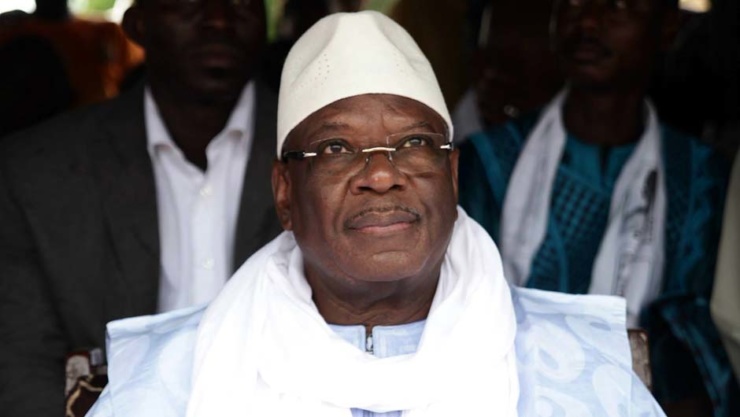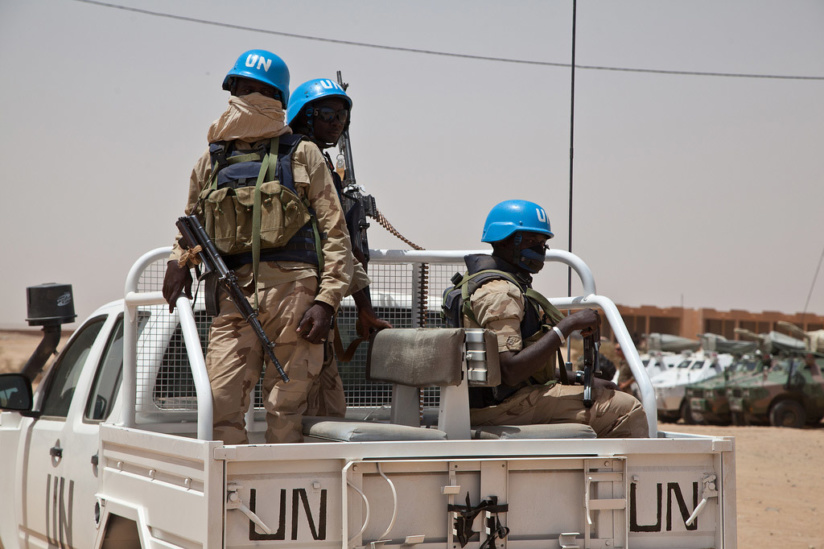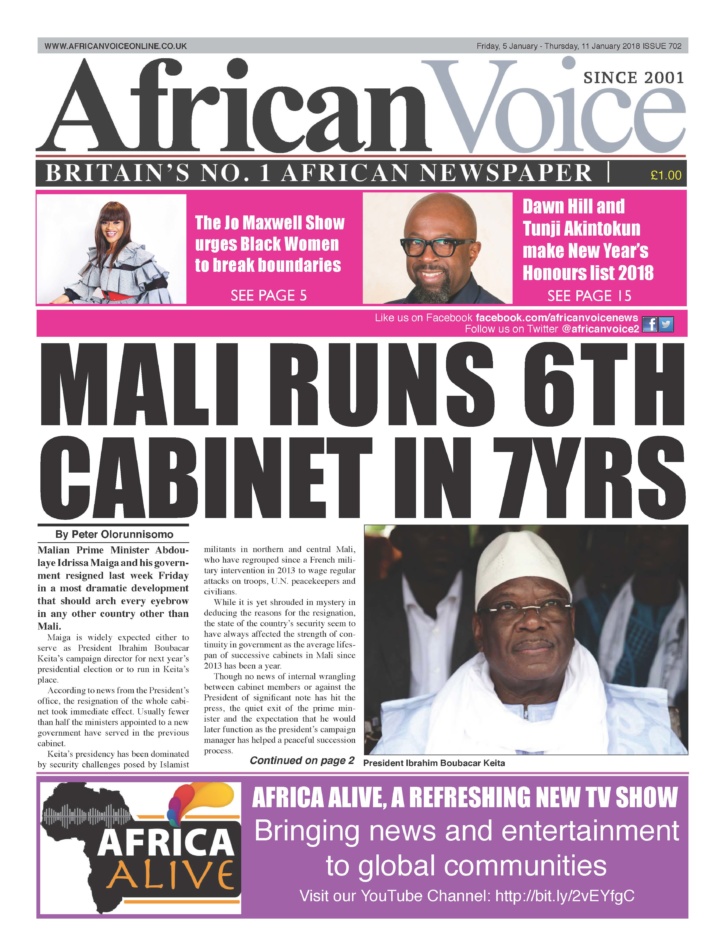By Peter Olorunnisomo – Malian Prime Minister Abdoulaye Idrissa Maiga and his government resigned last week Friday in a most dramatic development that should arch every eyebrow in any other country other than Mali.

Maiga is widely expected either to serve as President Ibrahim Boubacar Keita’s campaign director for next year’s presidential election or to run in Keita’s place.
According to news from the President’s office, the resignation of the whole cabinet took immediate effect. Usually fewer than half the ministers appointed to a new government have served in the previous cabinet.
Keita’s presidency has been dominated by security challenges posed by Islamist militants in northern and central Mali, who have regrouped since a French military intervention in 2013 to wage regular attacks on troops, U.N. peacekeepers and civilians.
While it is yet shrouded in mystery in deducing the reasons for the resignation, the state of the country’s security seem to have always affected the strength of continuity in government as the average lifespan of successive cabinets in Mali since 2013 has been a year.

Though no news of internal wrangling between cabinet members or against the President of significant note has hit the press, the quiet exit of the prime minister and the expectation that he would later function as the president’s campaign manager has helped a peaceful succession process.
The country is about months away from a presidential election that will take place against the backdrop of a fragile peace agreement and instability.
Mali’s President Ibrahim Boubacar Keita named former defence minister, Soumeylou Boubeye Maiga, as the new prime minister Saturday, a day after the government resigned in a surprise move that could suggest that the resignations may have been forewarned to the President albeit the fragile security will possibly not augur well for a lacuna.
A message posted on Twitter said Boubeye Maiga would replace Abdoulaye Idrissa Maiga, who resigned unexpectedly on Friday.
Boubeye Maiga is considered close to Keita despite having to resign as defence minister in 2014 after the Malian army suffered defeats against Tuareg rebel groups in the country’s troubled north.
It would appear to political observers that the coming election is crucial to President Keita which is actually only in seven months away while the turnover of cabinet teams has been a recurring feature of the President’s term in office.
Mali’s has been political fragile as a result of the challenge posed by security issues in the country necessitating the intervention of international organisations and nations in peace-keeping exercises.
Mali’s north is still a theatre of unrest almost six years after a French-led military operation chased Islamist extremists linked to al-Qaida from a region they had taken control of in early 2012.
Mali descended into a spiral of instability in 2012, when ethnic Tuareg rebels and other groups took advantage of a power vacuum left by a military coup in the capital, Bamako, to take over northern Mali in a bid for independence.
But the rebellion for Tuareg autonomy was quickly hijacked by Islamist militants, including al-Qaida-aligned groups.
Events in Mali prompted France to intervene militarily in its former colony in January 2013. French forces were largely able to push back the extremist insurgency, but militants continue to use sparse terrain to launch attacks. Their insurgency has since spread into Burkina Faso and Niger.
The UN deployed the peacekeeping MINUSMA mission in July 2013 to replace the French mission.
It now oversees a June 2015 peace accord signed between the Malian government, Tuareg rebels and other northern rebel factions, but groups linked to al-Qaida are excluded. Implementation of the peace agreement is fragile.
A German soldier in Gao as part of the MINUSMA mission.
Separately, Chad, Mauritania, Mali, Niger and Burkina Faso – known as the G5 – are setting up a 5,000-strong combined Sahel force to combat smuggling and extremist groups.
The EU is the main financial supporter of this French-backed African force.
The G5 force is expected to complement France’s Barkhane force of 4,000 troops active in the Sahel region and the MINUSMA mission.
Germany has about 1,000 troops deployed in Mali as part of the UN peacekeeping mission.
Kindly follow us on twitter:@AfricanVoice2 









